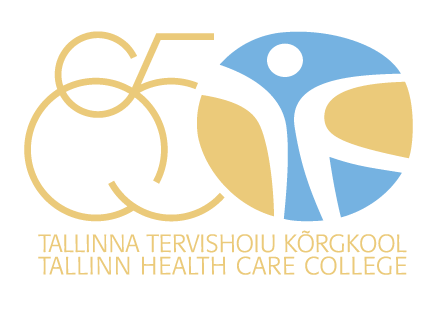The recognition of prior learning
Conditions and procedures for the recognition of prior learning at Tallinn Health Care College
The purpose and possibilities of use of RPL
The recognition of prior learning (RPL) is a process that helps a competent authority assess the competence of an applicant based on specific criteria, i.e. how the applicant’s knowledge, skills and attitudes adhere to the enrolment criteria of the educational institution, the learning outcomes of the curriculum or its part(s) or the competency requirements of the professional standard. If the applicant's competences meet the requirements, they will be taken into account with respect to fulfilment of the enrolment criteria, completion of the curriculum or upon awarding a professional qualification.
In principle, it means that a person acquiring an education or applying for a professional qualification can take into account their prior studies (for example, what has previously been acquired in formal education, learned independently or in refresher courses) or what has been learned from professional experience (communication and practical skills) in order to have certain courses recognised when completing a curriculum.
RPL makes it possible to recognise:
- Prior studies in educational institutions;
- Learning acquired through in-service training or independent studies;
- Knowledge and skills acquired through professional and other experience.
The processing fees
The processing fees for applications for crediting previous studies and work experience at Tallinn Health Care College from 01.01.2014 are as follows:
1. crediting of RPL for the completion of the curriculum up to 15 ECTS 15 EUR.
RPL for the completion of a curriculum of more than 15 ECTS 25 EUR.
2. The corresponding RPL fees apply to students, pupils and external students of the higher education institution. The fees are also charged for the application of RPL on admission.
3. It is not possible to apply RPL for free enrolments and continuing education students.
4. RPL commissions have the right to exceptionally exempt an applicant from the RPL procedure fee.
The procedure fees have been approved by the Rector's Decree (19 December 2013 / No 1-4/39).
The RPL application fee is not applied in the case of study abroad (where the student of Tallinn Health Care College performs subjects or internship abroad within the framework of exchange studies).
For the applicant, the process of RPL consists of the following stages:
- Counselling and self-assessment of the applicant
The applicants consult an RPL specialist. Then they analyse their knowledge and skills, as well as the way these fit into the context of the current curriculum.
- Preparation and submission of the application
In this stage, the applicant fills in an RPL application form. The application forms are available in the study information system (SYS).
The application must be filed with all evidence certifying the existence of the knowledge and skills acquired, i.e. self-analysis, subject syllabus, certificates/diplomas, etc.
- Assessment of the application
The application is assessed by an RPL Committee. The RPL Committee has a right to require additional evidence, conduct an interview with the applicant, ask the applicant to demonstrate his/her skills, carry out an on-the-spot observation, etc.
- Decision and feedback
The assessment committee makes a decision after completing the assessment process. The RPL specialist gives feedback on the decision, records the decision in the RPL register and, in the event of a positive decision, enters the course recognised in the study information system (SIS).
- Contestation (if necessary)
The learner has a right to contest the decision pursuant to the Study Regulations.
Additional information:
-
The recognition of prior learning


